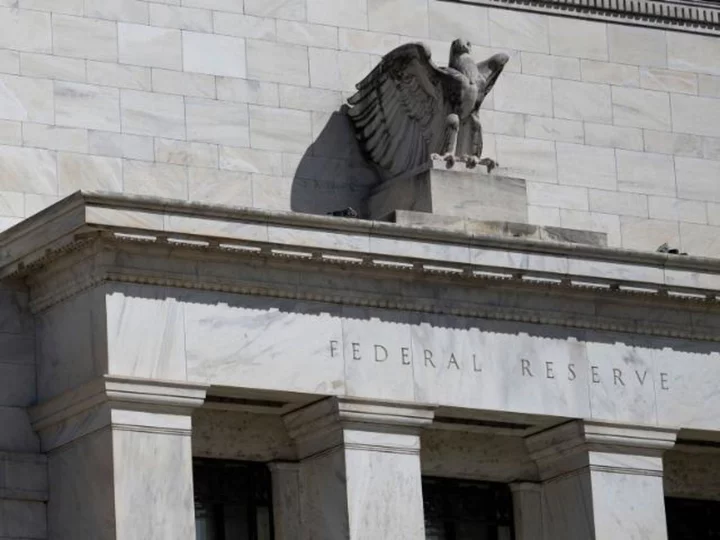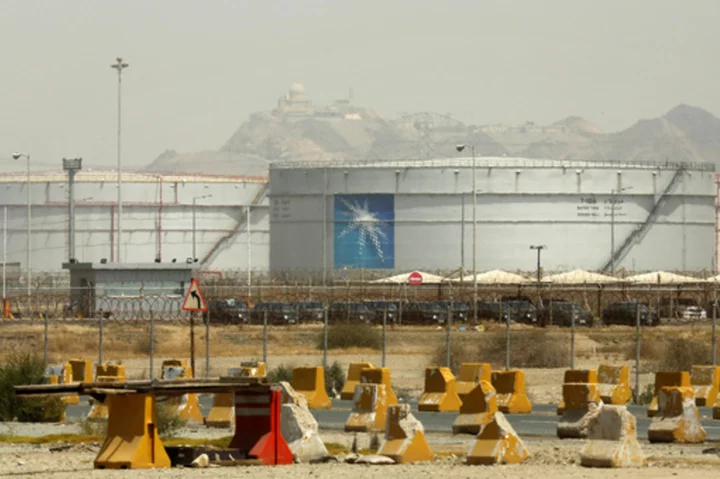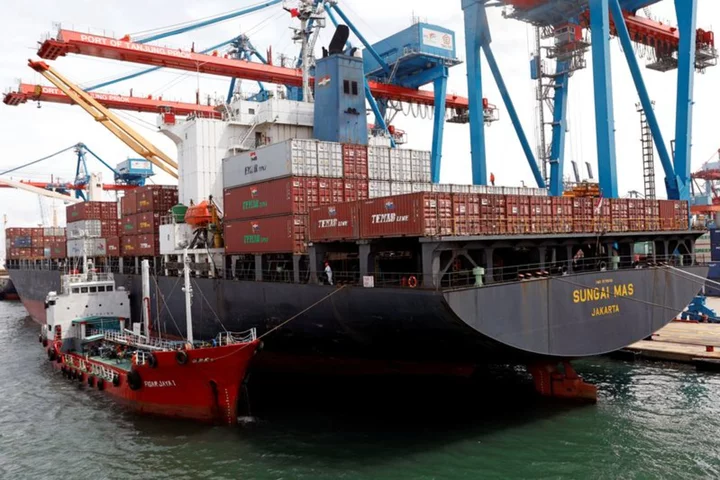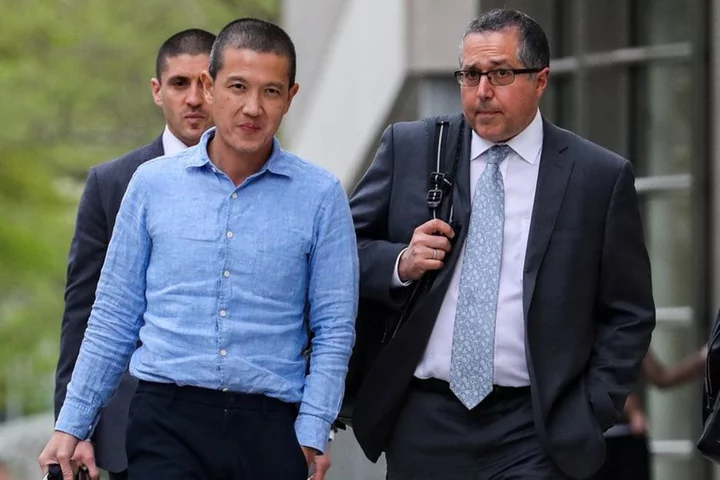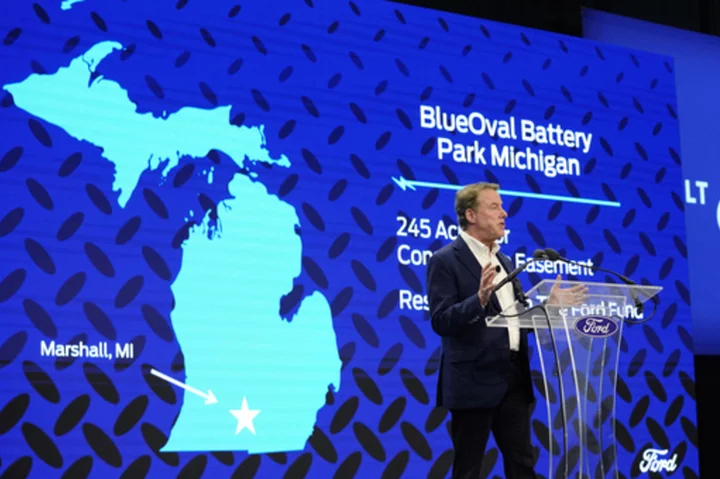Some Federal Reserve officials are already advocating for two consecutive rate hikes starting this month to ensure inflation's defeat, but will their sway hold amid a shakeup at the Fed committee that decides interest rates?
Probably.
St. Louis Fed President James Bullard, the Fed's most hawkish voice, announced Thursday he is stepping down in August. Economist Adriana Kugler, known for her dovish posture, is likely to win Senate confirmation for a governor role at the central bank.
While a July rate hike has been baked in for some time, the Fed's decision in September isn't as clear and plenty of data will be released until then.
What is clear, however, is that the Fed chair historically has a major influence in the Federal Open Market Committee, the Fed's monetary policymaking arm. Fed Chair Powell has said the Fed still has more work to do, and he himself hasn't ruled out back-to-back rate hikes. The central bank has a tradition of collegiality, meaning that although officials debate their views, they still respect the view of the majority. That's why the vote in June was unanimous, despite the debating that was evident from the meeting minutes, released earlier this month.
Right now, it seems like the hawks outnumber the doves.
Why the bias is toward hiking in September
Fed Governor Christopher Waller, who has a permanent vote on the Fed committee that decides interest rates, doubled down late last week on the widely held view among Fed officials that two more rate hikes are needed this year.
"Since the June meeting, with another month of data to evaluate lending conditions, I am more confident that the banking turmoil is not going to result in a significant problem for the economy, and I see no reason why the first of those two hikes should not occur at our meeting later this month," Waller said at a Money Marketeers of New York University forum on Thursday.
But he also suggested that the Fed prefers to get rate hikes over with as soon as possible.
"From there, I will need to see how the data come in," he said. "If inflation does not continue to show progress and there are no suggestions of a significant slowdown in economic activity, then a second 25-basis-point [quarter-point] hike should come sooner rather than later, but that decision is for the future."
In other words, if inflation's slowdown stalls, the labor market remains strong by historical standards and if the economy's expansion cools only marginally, it would be best to rip the bandage off and hike in September.
The longer inflation remains elevated, "the greater the risk of inflation expectations becoming unanchored," according to the minutes from the June meeting. That means there's a dangerous risk Americans could simply begin to accept permanently higher prices if inflation doesn't come down soon.
The Fed is overwhelmingly expected to raise its key federal funds rate later this month after it paused in June after 10 straight rate hikes. Officials voted to hold rates steady at a range of 5-5.25% to reassess the economy's health, but mostly over uncertainty about how bank stresses from the spring would affect access to credit.
The minutes from that meeting showed officials weren't as united in their decision, even though they eventually voted to pause unanimously. So far, most officials have signaled that the bias is toward a hike in July, after they voted to hawkishly pause last month.
But the decision in September will be a difficult one because the Fed will have to decide whether to get its second hike out of the way or wait for worse signs that inflation is not on track to hit the central bank's target of 2%. And officials have made clear they want inflation to come down as soon as possible.
So will Kugler's addition to the FOMC convince the hawks that a hike in September isn't necessary? Kugler is a labor economist, so she's well attuned to the Fed's employment mandate. But she also recognizes that the focus right now is on inflation.
"I truly believe that both sides of the mandate are very important," she told lawmakers last month during her confirmation hearing. "Right now, the inflation side is critical."
A data-dependent Fed
Concerns with bank stresses weighing too heavily on credit have largely faded, and credit conditions have not substantially tightened since the collapse of three regional banks earlier this year. Some of the nation's top banks reported blockbuster second-quarter earnings last week, and the Fed's Beige Book showed that access to credit hasn't contracted drastically.
That's given Fed officials some reassurance that they can press ahead, making the likelihood of a rate hike in September a growing possibility — but, of course, it all depends on what economic indicators ultimately reveal in the coming months.
On the inflation front, officials are squarely focused on core inflation and other sub-measures such as services inflation excluding energy services and housing costs. Those haven't decelerated as fast as the headline number. The Personal Consumption Expenditures price index — the Fed's favorite inflation gauge — rose 3.8% in May from a year earlier, down from April's 4.3% increase. Meanwhile, the core measure only edged lower to 4.6% from 4.7%, though it landed at its lowest point since October 2021.
If core inflation continues to moderate only slightly, Fed officials might just want to get the second rate hike over with.
The tight labor market also continues to be a source of inflationary pressure, so officials need to it slow further. Between 70,000 and 100,000 job gains are needed a month to keep up with population growth, so job gains close to that range would signal that the labor market has finally pumped the brakes. Employers added 209,000 jobs in June, so if officials were to consider not hiking, the August jobs report would have to be close to that range.
The FOMC next meets on July 25-26, with an announcement on rate hikes due at 2 p.m. ET that Wednesday and a press conference from Chair Powell at 2:30 p.m.

